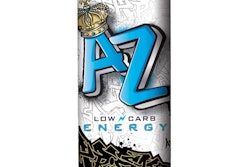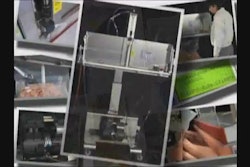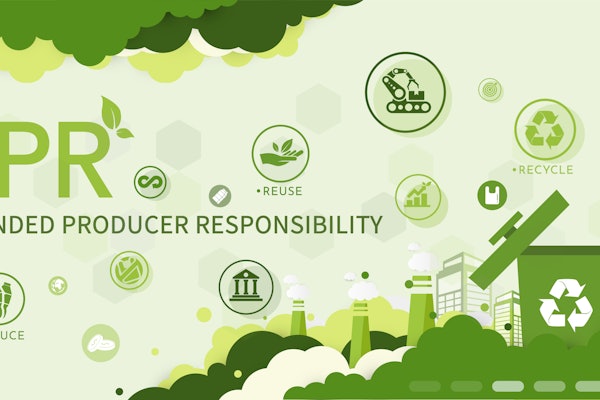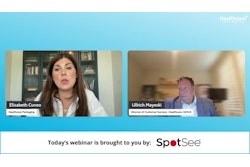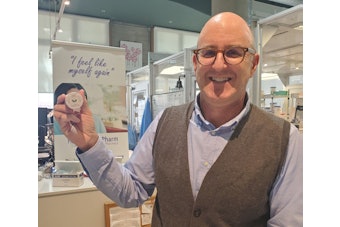This content was written and submitted by the supplier. It has only been modified to comply with this publication’s space and style.
The company is reducing the total carbon footprint by bringing the material supply chain closer to production and offering its customers more choices of materials, including up to 100% post-consumer content polyethylene terephthalate (PET).
“Our EcoStar sheet now requires less total energy to produce and will further help our customers meet their sustainability goals. We’re excited to bring bottle cleaning and sheet production together in a continuous process loop. Our customers expect consistent, high-quality packaging with the smallest possible carbon footprint. Our factory design will streamline operations while delivering the recycled sheet products the market requires,” said the company CEO Dan Mohs.
Placon is the first thermoforming company in the consumer packaging industry to implement its own in-house recycling. With the new facility, the company will receive curbside collected bottles to clean, grind and extrude into sheet. Reducing the number of bottles going to landfills while providing high-quality material for customers has long been a goal for the company. Placon has been using recycled content in its packaging for more than 15 years, and over the last seven years it has diverted more than one billion discarded bottles from landfills.
“We’re proud of our products, but we’re also proud that our recycling efforts have had a tremendous, positive impact on the environment,” Mohs said, adding that the demand for recycled PET (RPET) products, especially thermoformed packaging, is increasing. “We know how important it is to continue designing high-impact, eye-catching packaging that sells our customers’ products at retail, all while reducing the environmental impact.” In-house recycling will help Placon meet customer demand for both retail and food packaging.
While Placon has extruded sheet for internal use for 20 years, this marks the first time it will sell their EcoStar branded sheet on the open market. “Over the last ten years we have developed a number of unique polyester based sheet products to address the challenges our customers faced with recycled materials. Our customers have requested that we not only support them with thermoforms but also plastic sheet in order to fulfill their changing production requirements.”
In addition to EcoStar post-consumer RPET, the facility will produce LNO (letter of non-object) flake allowing food contact with recycled material. Placon has also commercialized an RF sealable RPET grade of material (EcoStar HS 1000) to address customers’ bar sealing requirements for PET. With only minor process adjustments, this material is a direct replacement for PVC sealing applications.
According to the Environmental Protection Agency, recycling one pound of PET instead of using virgin material saves approximately 12,000 BTUs of energy.
The recycling facility will be located in Fitchburg, WI and will be completed in two phases. In phase one, Placon will be adding an additional extruder for its EcoStar rollstock. This will be completed in the third quarter of 2010. Phase two will be the addition of the bottle washing equipment, which is scheduled to be operational in the first quarter of 2011 with plans for additional extruders to follow.
Mohs said that integrating the bottle washing and grinding makes sense, given the amount of post-consumer material the company uses. With the completion of the in-house recycling facility, the firm will be able to streamline the recycling process to ensure that raw material meets Placon’s high standards.
In addition, Wisconsin Governor Jim Doyle announced Placon will receive $250,000 in tax credits from the Economic Development Tax Credit Program from the Department of Commerce to construct and equip a new recycling facility in Dane County.
“Our EcoStar sheet now requires less total energy to produce and will further help our customers meet their sustainability goals. We’re excited to bring bottle cleaning and sheet production together in a continuous process loop. Our customers expect consistent, high-quality packaging with the smallest possible carbon footprint. Our factory design will streamline operations while delivering the recycled sheet products the market requires,” said the company CEO Dan Mohs.
Placon is the first thermoforming company in the consumer packaging industry to implement its own in-house recycling. With the new facility, the company will receive curbside collected bottles to clean, grind and extrude into sheet. Reducing the number of bottles going to landfills while providing high-quality material for customers has long been a goal for the company. Placon has been using recycled content in its packaging for more than 15 years, and over the last seven years it has diverted more than one billion discarded bottles from landfills.
“We’re proud of our products, but we’re also proud that our recycling efforts have had a tremendous, positive impact on the environment,” Mohs said, adding that the demand for recycled PET (RPET) products, especially thermoformed packaging, is increasing. “We know how important it is to continue designing high-impact, eye-catching packaging that sells our customers’ products at retail, all while reducing the environmental impact.” In-house recycling will help Placon meet customer demand for both retail and food packaging.
While Placon has extruded sheet for internal use for 20 years, this marks the first time it will sell their EcoStar branded sheet on the open market. “Over the last ten years we have developed a number of unique polyester based sheet products to address the challenges our customers faced with recycled materials. Our customers have requested that we not only support them with thermoforms but also plastic sheet in order to fulfill their changing production requirements.”
In addition to EcoStar post-consumer RPET, the facility will produce LNO (letter of non-object) flake allowing food contact with recycled material. Placon has also commercialized an RF sealable RPET grade of material (EcoStar HS 1000) to address customers’ bar sealing requirements for PET. With only minor process adjustments, this material is a direct replacement for PVC sealing applications.
According to the Environmental Protection Agency, recycling one pound of PET instead of using virgin material saves approximately 12,000 BTUs of energy.
The recycling facility will be located in Fitchburg, WI and will be completed in two phases. In phase one, Placon will be adding an additional extruder for its EcoStar rollstock. This will be completed in the third quarter of 2010. Phase two will be the addition of the bottle washing equipment, which is scheduled to be operational in the first quarter of 2011 with plans for additional extruders to follow.
Mohs said that integrating the bottle washing and grinding makes sense, given the amount of post-consumer material the company uses. With the completion of the in-house recycling facility, the firm will be able to streamline the recycling process to ensure that raw material meets Placon’s high standards.
In addition, Wisconsin Governor Jim Doyle announced Placon will receive $250,000 in tax credits from the Economic Development Tax Credit Program from the Department of Commerce to construct and equip a new recycling facility in Dane County.
Companies in this press-release



